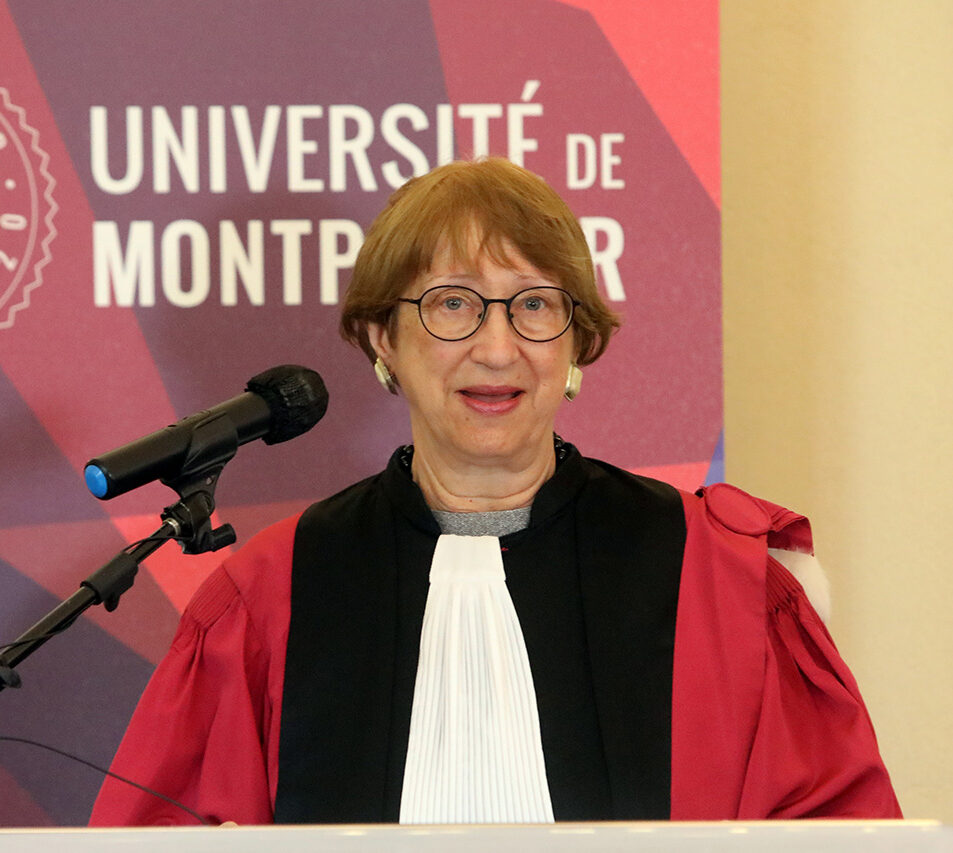Milena Dragicevic Sesic: a peaceful fight for culture
She is a remarkable figure who received an honorary doctorate from the University of Montpellier at the end of December 2023. A leading Serbian teacher who is deeply committed to research in her field of expertise, Milena Dragićević Šešić has helped to develop cultural policy studies around the world, notably through the UNESCO Chair she has held since 2004.

Awarding Milena Dragićević Šešić an honorary doctorate was an obvious choice for Emmanuel Négrier, who sponsored the nomination. The director of the Center for Political and Social Studies (CEPEL) remembers their first meeting. It was on June 7, 2019, on the occasion of the 60th anniversary of the Ministry of Culture, when the Montpellier-based researcher invited her to a round table discussion because of her expertise in cultural policy."That day, she made a strong impression on us, highlighting the risks of identifying a role for culture in the construction or reconstruction of national identities in the Balkans, particularly the risks of conflict that this could provoke, as well as the threat of manipulation of historical data for the benefit of a retrospective reconstruction of history. I really liked this view of things, which does credit to a critical stance in the best sense of the term."For Milena Dragićević Šešić, it is a question of "making culture something other than a weapon of war," as Emmanuel Négrier points out.
Emerging cultural studies
This phrase takes on a whole new meaning when you look at Milena Dragićević Šešić's biography. Born in 1954 in a country still known as the Federal Republic of Yugoslavia, she grew up in a modest family where culture and the arts played an important role. Naturally, she became interested in the emerging field of cultural studies and enrolled at the University of Arts in Belgrade. She completed her studies at Paris V, in particular with Professor Joffre Dumazedier, considered one of the fathers of cultural studies.
She completed her doctorate in 1981 at the University of Arts in Belgrade, where she later became rector (2000-2004), after completing her studies with a state doctorate at the Faculty of Philology at the University of Belgrade (1990). Throughout her career, she taught a wide variety of subjects, particularly in the fields of cultural activities organization and cultural policy, actively participating in the development of these disciplines in Europe.
“Culturologist” and tireless educator
Now a globally recognized specialist in cultural policy, Milena readily describes herself asa"culturologist," a word that exists in Serbian but has no equivalent in French or English. According to Emmanuel Négrier, this"tireless educator"is "heavily involved in international research,"particularly through the UNESCO Chair in Interculturality and Mediation in the Balkans, which she has held since 2004. She is in demand all over the world, in Asia, Africa, Central Asia, and beyond.
For her, pure theory must be confronted with reality, reflection with action. But without ever imposing a particular view of things. "Milena has never sought to use her international recognition to propose a ready-made model that would be valid for everyone; she is wary of established principles,"confirms Emmanuel Négrier. Milena Dragićević Šešić has more than twenty books to her credit, some forty articles in international journals, and around fifty lectures... The list goes on.
Towards a different model of cultural policy
It is precisely because of its international reputation that Cepel was called upon to contribute its expertise to a research-action program entitled Stronger peripheries. "The central idea of this project is to build a coalition of intellectuals and stakeholders in favor of developing a different model of cultural policy, " explains the director of Cepel. We defend the idea that cultural policy models in Europe are directly inspired by countries that have particular resources, either market resources in the Anglo-Saxon world, or public (and therefore state) resources in countries such as France. But what is happening in the countries of Southern and Eastern Europe, which have neither of these resources and yet have ambitions for cultural action?"
Clearly, the social scientist shares the same vision of culture as his Serbian counterpart, who has already been elevated to the rank of Commander of the Order of Academic Palms in France (2003) and awarded the prestigious title of Professor Emeritus of the University of Arts in Belgrade (2020). According to Emmanuel Négrier: "Culture is both a field of activity and a dimension of collective life that can be overtaken by herd mentality and must be constantly discussed, questioned and innovated. This allows it to escape dependence on the powerful, both in the public and private spheres."
Culture as a process of emancipation
With a mischievous look and a smile on her lips throughout the ceremony inducting her as an honorary doctor of the University of Montpellier, Milena took advantage of her speech, delivered in excellent French, to emphasize her pride in being "cosmopolitan, non-aligned, European, and pan-Slavic." At the same time, she affirmed her independence of mind, not hesitating to warn against"academic capitalism" which threatens university education in an increasingly competitive world, preferring to promote a "cultural democracy"capable of defending "culture as a process of emancipation." Culture is a struggle, a peaceful one, certainly, but a struggle nonetheless.
